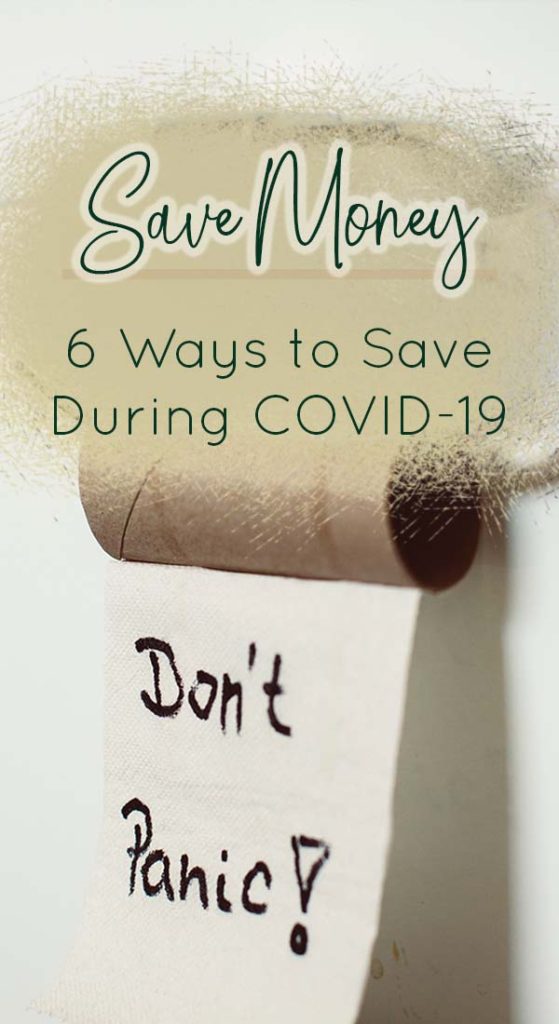What did we ever talk about before the coronavirus?
We have seen a lot of changes this year. Staying safe and healthy has been a top priority. Maintaining social engagement has required creativity. Toilet paper is the hot commodity. And financially, our resources have been challenged.
While some people have been able to stay at home and maintain their salary, others have experienced layoff or temporary shut-down. Not going to lie, I’m one of them, and its scary. It has a big effect on not just financial health, but also emotional and mental health as well. If you are finding yourself stressed out right now, you’re not alone.
A British Publication, The Independent, wrote that “The coronavirus will bankrupt more people than it kills.” This is unfortunately a reality for too many. According to Fortune, real unemployment rate could be at 24.9%, the worse since the great depression. More than 17 million Americans filed for unemployment benefits from mid-march to mid-april.
We have an amazing ability to adapt to challenges though. It may not be easy, things will be VERY lean, but it also won’t be forever. Having a plan in place will hopefully shine some light in.

Disclosure: This post may contain affiliate links, which means I may receive a small commission, at no cost to you, if you make a purchase through a link on this blog. I would never recommend a product I don’t use or love myself.
Set up an Emergency Budget
Your emergency budget is going to be the roadmap of where you need to get to. Cut out ALL of the unnecessary expenses. It’s the bare bones that you need to spend in order to survive.
If the coronavirus changed your earnings, then you have to find a way to change your expenses. On the income side, don’t forget to include unemployment or stimulus benefits. On the expense side, keep reading to figure out how to get these lower.
The emergency budget is ONLY necessary things, so it will look something like:
| REGULAR INCOME | EMERGENCY INCOME | |
| Salary | 5000 | 1000 |
| Stimulus | 1000 | |
| Unemployment | 1200 | |
| TOTOAL | 5000 | 3200 |
| REGULAR EXPENSE | EMERGENCY EXPENSE | |
| Housing | 1800 | 1800 |
| Utilities | 200 | 200* |
| Phone/Internet | 150 | 150* |
| Insurance | 300 | 300* |
| Student Loan | 400 | 400* |
| Car Loan | 300 | 300 |
| Food | 1000 | 700 |
| Gas | 200 | 120 |
| Entertainment | 150 | 0 |
| Travel | 100 | 0 |
| Gifts | 50 | 0 |
| Misc | 200 | 0 |
| TOTAL | $4850 | $3970 |
*Although these seem fixed, we will discuss how they can be lowered
Immediately, with just getting rid of luxury spending and tightening up on some variable necessities, this person could save $880. But if like them you are still short, then we have to figure out a way to close the gap or you may find yourself in more debt.
If you need help budgeting, try the Budget Template from iheart budgets, or apps like Mint, YNAB, or Personal Capital to get started.
USING YOUR EMERGENCY FUND
If you have an Emergency Fund, even if it is small, this may be a time to use it. You only want to use the emergency fund to supplement the difference between any income you still have and the expenses in your emergency budget. Still try to decrease expenses as much as possible and replenish your emergency fund as soon as you are able to.
If you don’t have an Emergency Fund, consider starting one.
Cutting Expenses
Most Americans don’t have an Emergency Fund. If you either don’t have emergency reserves, don’t have enough, or don’t want to use it, then it is time to get creative with how you can get your expenses down. Here are some recommendations:
1. HOUSING
If you have been part of the shelter in place then there may not be many options for changing your housing situation, but there are still ways to decrease costs related to your house.
- Refinance Your Mortgage Loan: Interest rates are dropping and if you are feeling strained by your monthly mortgage payment, this may be a good time to refinance for a lower rate.
- Stay up on routine home maintenance: Stuck at home with extra time? Finally get to all the household chores that have been being put off. Although cleaning up may not save you much up front, it could prevent a costly household emergency in the future. Changing the filter on the AC or cleaning out lint and build up in the dryer could decrease energy use and prolong the life of the unit. Clean our gutters to prevent water damage. Fix leaking faucets, malfunctioning outlets, running toilets to save on utilities, but more importantly to prevent major problems.
- Utilities: It’s a fact that utility bills have to get paid every month, and they are likely to go up because of all the extra time spent at home, but the amount is up to you. Being willing to be a little out of your ideal comfort range could save you. Wear layers in the winter, shorts in the summer. Many companies are suspending disconnections, but you will incur expenses that have to paid back later. I recommend paying it if you can.
- If you rent you have fewer cost savings options. Many states have a moratorium on eviction, but like utilities you will continue to accrue debt that needs to be repaid. Again, I recommend paying it if you can.
- Change your living situation: If your financial stability was changed drastically and you have looked at all other areas to cut costs, then you may have to do something more drastic like rent out spare rooms or move in with family.
-
CAR
- Gas usage should be down. If you have been sheltering in place then you are probably already saving on gas expenses these past months.
- Mileage discount for insurance: If you aren’t making your usual commute, then mileage for the year is probably down. Call and ask for a lower mileage discount.
- Don’t speed: This virus has been slowing down the pace of life for all of us, let that flow into your driving. Speeding gets worse gas mileage, puts you at risk of getting a ticket, and a speeding ticket would increase your insurance rates for years. Take it slow.
- Clean out your car: Less weight means less gas. And it’ll be nice to have a clean car. Don’t get too stingy though, taking out things you need like a spare tire, jack and emergency kit isn’t worth the pennies you’ll save.
- Properly inflate your tires for optimal performance
- Walk or bike when you can
-
DEBT
- Request an interest holiday from your creditor
- Pay the minimum until you are able to pay more again. Be very careful that you are not building up too much extra high-interest debt.
- Federal student debt is offering a pause of payments and interest, if you can continue to pay then you can decrease the principal interest free.
- Private student loans are more variable, some may have options for deferment or forebearance, but you likely won’t get it interest free
-
FOOD
- Eat out less: Since restaurants closed, eating at home became a more regular routine. If you can keep up the routine of eating at home, you could save a nice bundle.
- Keep grocery bills low: Eating at home is usually cheaper, but not always. Shop with a list to prevent impulse buying. Buy generic. Price compare using the unit price, the small number in the corner. Shopping around the perimeter of the store is both healthier and cheaper.
-
ENTERTAINMENT
- Hopefully you found cheap ways to entertain yourself at home during the shelter in place. Since most entertainment venues were closed, this line item should automatically be low. Keep saving in this area.
- Curb online shopping, just don’t do it if you don’t have it.
- Cheap ideas: charades, biking, hiking, arts and crafts, board games, puzzles
-
MEMBERSHIPS AND SERVICES
Take the time to look through statements and see if there is anything you’re getting charged for that you completely forgot about. Get rid of subscriptions you don’t need or use. If you are having a hard time making up your mind, suspend memberships and try a month without it, and then get rid of it if you didn’t really miss it.
- Gym memberships
- Monthly subscription boxes
- Cable TV
- Netflix, Hulu, HBO, Startz, Amazon Prime Video. Try to pick one and forgo the rest.
- Storage Unit. If you have the time, look at clearing out extra things, they can be sold and you could get rid of a payment.
- If you are staying home, then day care, yardwork and house cleaning are other services that you may want to do yourself.
The more your income was effected, the more likely that things are going to be VERY tight. You can try to make it more fun by implementing a No Spend Month, like Frugalwoods Uber Frugal Month.
If in the past couple months your finances took a hard hit, the future may be looking bleak. But just because things got shaken up, doesn’t mean that it will stay that way. Consider your options, get creative, and make the most of what you have.
Once you get all of these things in order, I recommend listening to some interesting podcasts. We’ll need some new conversation topics soon.



